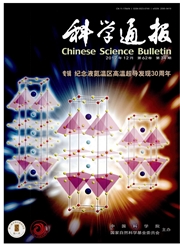

 中文摘要:
中文摘要:
海洋酸化是CO2排放引起的另一重大环境问题.工业革命以来,海洋吸收了人类排放CO2总量的三分之一.目前,海洋每年吸收的量约为人类排放量的四分之一(即约每小时吸收100万吨以上的CO2),对缓解全球变暖起着重要的作用.然而,随着海洋吸收CO2量的增加,表层海水的碱性下降,引起海洋酸化.海洋酸化会引起海洋系统内一系列化学变化,从而影响到大多数海洋生物的生理、生长、繁殖、代谢与生存,可能最终导致海洋生态系统发生不可逆转的变化,影响海洋生态系统的平衡及对人类的服务功能.地球历史上曾多次发生过海洋酸化事件,伴随着生物种类的灭绝,其内在联系虽然不甚明确,却也可能暗示未来海洋酸化可能对海洋生态系统产生重大的影响.
 英文摘要:
英文摘要:
Ocean acidification is known as another global change problem caused by increasing atmospheric CO2. Since the industrial revolution, the oceans have absorbed more than one third of the anthropogenic CO2 released to the atmosphere, currently, at a rate of over 1 million tons per hour, totaling to about one quarter of all anthropogenic CO2 emissions annually. Uptake of CO2 by the ocean has played an important role in stabilizing climate by mitigating global warming. However, rising ocean carbon levels caused by the uptake of anthropogenic CO2 (acidic gas) leads to increased ocean acidity (reduced pH) and related changes in ocean carbonate chemistry, or "ocean acidification". Recent research has shown that ocean acidification affects the physiology, growth, survival, and reproduction of many, if not most marine organisms. Ultimately, future ocean acidification may lead to significant changes in many marine ecosystems, with consequential impact on ecosystem services to societies. Several ocean acidification events are known to have occurred during Earth's history, each coinciding with high rates of species' extinctions. Although the mechanisms involved in past massive species extinction associated with ocean acidification events, they certainly hint potential disastrous impacts on ecosystem functions in short future.
 同期刊论文项目
同期刊论文项目
 同项目期刊论文
同项目期刊论文
 A new direction in effective accounting for the atmospheric CO2 budget: Considering the combined act
A new direction in effective accounting for the atmospheric CO2 budget: Considering the combined act Wet-dry seasonal and spatial variations in the delta C-13 and delta O-18 values of the modern endoge
Wet-dry seasonal and spatial variations in the delta C-13 and delta O-18 values of the modern endoge Effect of different land use/land cover on karst hydrogeochemistry: A paired catchment study of Chen
Effect of different land use/land cover on karst hydrogeochemistry: A paired catchment study of Chen Experimental study on the utilization of DIC by Oocystis solitaria Wittr and its influence on the pr
Experimental study on the utilization of DIC by Oocystis solitaria Wittr and its influence on the pr Wet-dry seasonal variations of hydrochemistry and carbonate precipitation rates in a travertine-depo
Wet-dry seasonal variations of hydrochemistry and carbonate precipitation rates in a travertine-depo 期刊信息
期刊信息
